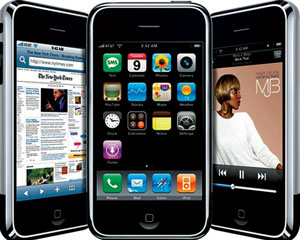
As part of its ongoing activities, the Monthly Financial Sector Bulletin — a subscription-based monthly roundup of key financial sector developments which I edit — monitors new product initiatives.
Financial Sector Spotlight with Omen Muza
Going forward, the bulletin will take this work a step further by rating the monitored products according to set criteria namely: Novelty/innovation, inclusivity, cost effectiveness/affordability, versatility, convenience, job additiveness, collaborativeness, tech-savvy, synergistic capacity and scale/scalability. The product which meets most of these criteria or ticks the highest number of boxes becomes the product of the month.
The main objective of this exercise is to not only recognise, but also encourage product innovation in the financial services sector while providing evidence-based or systematic criteria for measuring or assessing financial sector development. The rating will be accompanied by a product review based on the extent to which the product meets the stated criteria.
Out of the seven products recorded during the month of September Telecare Mobile Insurance emerged the winner ahead of the likes of Doves’ Smartdove, CABS EasyInsure and POSB’s Express Loans which gave it some notable competition.
Telecare — an insurance product officially launched by Telecel on September 25 2014 offering Telecel subscribers funeral, hospital as well as local and international travel cover through their Telecel lines — is therefore the inaugural MFSB Product of the Month (September 2014) with a score of 8½. Read on to find out how well it measures up to our criteria?
Is this the first time this is being done?
Of course not. There once was EcoLife, a short-term life assurance product launched slightly over four years ago (effective October 6 2010) by Econet Wireless Zimbabwe in partnership with First Mutual Life (FML) as underwriter. Although TeleCare Mobile Insurance is unique in that it provides three different insurance plans (Funeral, Hospital and Travel) under one service, the underlying product — insurance — is not new.
- Chamisa under fire over US$120K donation
- Mavhunga puts DeMbare into Chibuku quarterfinals
- Pension funds bet on Cabora Bassa oilfields
- Councils defy govt fire tender directive
Keep Reading
Does Telecare promote inclusion?
Certainly. TeleCare is targeted at the ordinary man in the street so from that perspective, it pushes the frontiers of inclusion in the provision of insurance services.
Does it reduce or eliminate cost?
Telecel says that its partnership with Zimnat Lion is meant to drastically reduce the cost of insurance to the ordinary man, hence monthly premiums as low as $0,45 while the process of joining the service through dialing *808# on one’s mobile phone is simple and cost effective, ultimately reducing the cost of delivering the product. The product also reduces the effective cost to customers since anyone who subscribes for the service automatically gets free Funeral cover of up to $250 for any of the registered dependents on the plans.
Is it for international use as well?
TeleCare is versatile in that the offering includes both local and international travel insurance cover. What we are not sure about is whether someone in the Diaspora for instance, can currently join this service.
Does it enhance convenience?
The availability of TeleCare Mobile Insurance through the mobile handset — as its name aptly suggests — is its first mark of convenience since almost everyone has a handset these days. Convenience is also enhanced by the fact that subscribers are able to submit their claims through any Telecel office for onward transmission to Zimnat.
Does Telecare create employment?
Though the use of technology to sell products through self-service channels inherently causes loss of jobs, it can be argued that by making insurance affordable and easily accessible to a mass market, TeleCare will drive volumes in the insurance sector, thereby improving sectoral viability and ultimately helping to at least save existing jobs.
Does it leverage on partnerships?
Since Telecel is not in the insurance business, the success of TeleCare can only be based on its s partnership with an insurer, Zimnat Lion in this case, which boasts no less than 68 years worth of experience in the industry.
Does it make effective use of technology?
Without the underlying mobile technology platform which confers it with the key success factors of affordability, convenience and ease of access, Telecare would be just another ordinary “hard-sell” insurance product for reps to pester customers with. The technology platform is what makes the difference — it is the bedrock of this product.
Does it integrate well with other products?
In order to facilitate payment of premiums, TeleCare naturally had to integrate with TeleCash, Telecel’s existing payment platform, without which settlement would be a challenge. Telecel has said it plans to increase the range of complimentary insurance services once the first phase has been successfully rolled out, meaning that the product is scalable. Also, one assumes that there is some level of integration between Telecel and Zimnat’s core systems with synergistic benefits.
Can it potentially impact on meaningful numbers of people?
With a current subscriber base of around 2,5 million and a year-end target to 3,3 million, theoretically most of these people can all potentially benefit from TeleCare. Also, on paper nothing stops Telecel from eventually offering this product to subscribers of other networks as a way of wooing them.
lFeedback: omen.muza@gmail.com. Omen N Muza writes in his personal capacity. You can view his LinkedIn profile at zw.linkedin.com/pub/omen-n-muza/30/641/3b8











